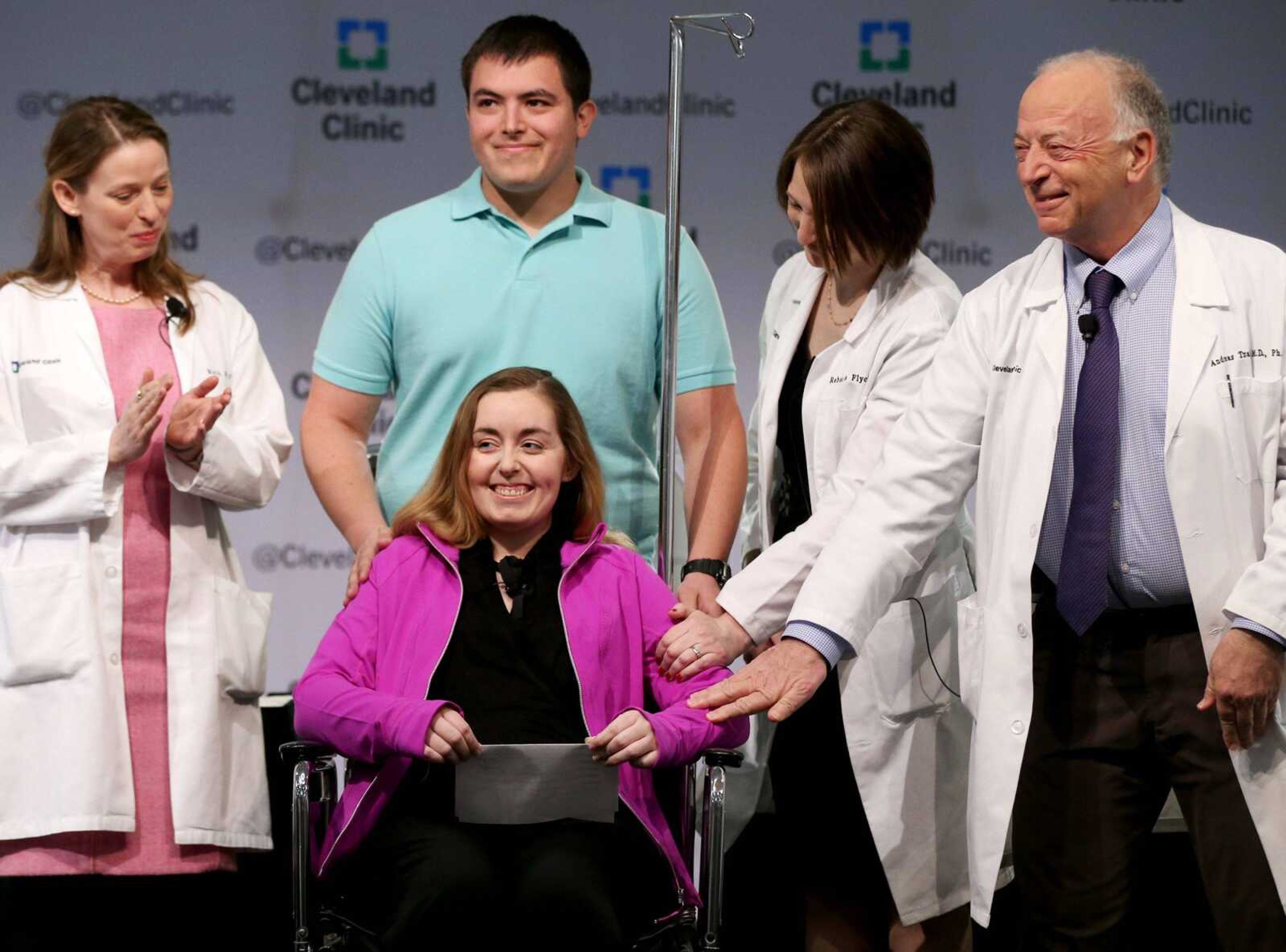Womb transplant recipient grateful for chance at pregnancy
CLEVELAND -- The recipient of the nation's first uterus transplant said Monday she prayed for years to be able to bear a child and is grateful to the deceased donor's family and surgeons who've given her that chance. Doctors at the Cleveland Clinic said Monday the 26-year-old woman is recovering well after receiving the uterus late last month...
CLEVELAND -- The recipient of the nation's first uterus transplant said Monday she prayed for years to be able to bear a child and is grateful to the deceased donor's family and surgeons who've given her that chance.
Doctors at the Cleveland Clinic said Monday the 26-year-old woman is recovering well after receiving the uterus late last month.
The experimental surgery is part of a new frontier in transplantation. If it works, it might be an alternative for some of the thousands of women unable to have children because they were born without a uterus or lost it to disease.
The woman, identified only as Lindsey, appeared briefly at a news conference with her husband. She said she already is a mother to three "beautiful little boys" adopted through foster care, and she was told when she was 16 she wouldn't be able to bear children.
The woman must wait at least a year to ensure the new uterus is healthy enough to try getting pregnant through in vitro fertilization, using embryos frozen ahead of the operation.
To monitor the transplant, she will undergo monthly examinations.
Other countries have tried womb transplants. Sweden reported the first successful birth in 2014, with a total of five healthy babies from nine transplants so far. The transplant team at the Cleveland Clinic, which has been exploring the possibility of performing uterus transplants for 10 years, trained with the Swedish surgeons.
The hospital has screened more than 250 women to identify 10 who qualify for the clinical trial, those lacking a functional uterus but with healthy ovaries that produce eggs.
They must understand the risks -- complications from abdominal surgery, plus the possibility the transplant will fail -- and that it's experimental.
One concern, medically and ethically, is the effect necessary anti-rejection drugs have on a developing fetus, the doctors said Monday. Dr. Andreas Tzakis, a transplant surgeon who is leading the study, said many women who've had kidney transplants have delivered healthy babies while taking anti-rejection drugs.
Connect with the Southeast Missourian Newsroom:
For corrections to this story or other insights for the editor, click here. To submit a letter to the editor, click here. To learn about the Southeast Missourian’s AI Policy, click here.










